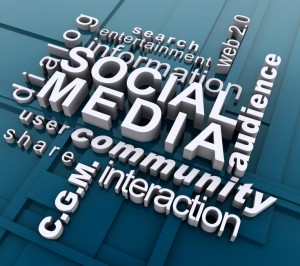Well that sounds like a silly question. But it goes to the heart of what social media really is. It’s causing many to drop out of social media efforts.
I read articles from the best and brightest in social media and I’m constantly being told that I need a loyal audience of engaged fans to accomplish my goals.
Really? Do all or most of us have the pizzazz to do it so well that we constantly drive the same people back to our sites time and time again?
The social media experts I pay attention to got in early and are quite good at what they do “but” I wonder whether or not they exist in a bubble unrecognizable to the rest of us.
While not the sites I’m referring to, I love “This Week in Tech” and CNET podcasts, but even they debate whether their observations apply to the average person.
A new vision of social media:
I believe that a new version of social media is coming into clearer focus, one that simply invites people to the conversation via search and Twiter, Google+ and Facebook. I believe that successful social media is not dependant on a large and never-ending audience of frequent visitors.
The vast majority of us who have been running social media sites for five years or longer understand that we are not oracles who drive hundreds of thousands of regular visitors to our sites producing lots of daily comments. Our website numbers are impressive and but the bulk are new to the site and interactions with visitors are infrequent.
New data supports my observations:
First example: An article from Media Post titled “Social Falls Short On Customer Loyalty, Traditional Methods Encouraged” reexamines the issue of building a base of loyal customers.
The article states, “While much of the marketing community is focused on sealing better relationships between brands and consumers via social media, a new study from Pitney Bowes suggests that their efforts would be better spent in other areas.
In fact, the new study — based on a survey of 5,000 consumers in the U.S., U.K., France and Germany — found social media to be one of the least effective engagement techniques for encouraging customer loyalty for larger and small businesses alike.”
Second example: It gets back to an article I wrote for this site asking “Is Social Media Really Social.” The premise is that customer interaction with the vast majority of social sites is minimal.
I stated, “Social media has no clear definition as to content or purpose; it depends on your audience and what you are trying to achieve. You create material that matches learning styles (audio, video, fact sheets, story-based articles) and you offer unique perspectives that no one else is providing. You place all on a website and additional channels (i.e., YouTube, Facebook, Twitter, Google+) and you sit back and see what happens.
Whether you represent government or nonprofits or associations or corporations, social media represents an “invitation” to converse. It’s not a requirement. So our critics are right, it’s mostly a one-way street.
Additional examples: There’s a growing number of research (corporate Facebook pages, news organizations not responding to customer interactions on their own posts) indicating that social media sites rarely engage with their audience.
While there is a difference as to large numbers of “returning” fans and “interactions,” both indicate that people who use the net may not be all that loyal to one site regardless as to it’s usefulness. They come and go based on a variety of things; brand loyalty may have limits (which is why e-mail is crucial to our success).
Social is still the future of communication:
I said previously that it’s a matter of quality versus quantity. Look, social media has the power to destroy or lift any organization and I believe that social “is” the future of communication “but” the ability of any organization to find that unserved niche and to create a well crafted social media presence takes a ton of time and lots of hard work.
When all that time and effort doesn’t create a loyal audience of endless thousands of people and hundreds of daily communications, we feel like failures. This is silly; the unrealistic perceptions of social media success are driving lots of people out of the market.
People “will” come to your site and the interactions will greatly profit your organization. We just need a more realistic understanding as to social media brand loyalty and what results are accomplishable.
Best, Len.
Source: http://leonardsipes.com/is-social-media-really-social/





Why not just drop “social media” from this article and say “online information” or just “online media.” I don’t see how you can call it social media if it is really just one-way in approach or goal.
The re-distribution of content one-way via third party online services is fine, but to suggest that governments or non-profits shouldn’t bother with the effort engaging people online because its tough, is a disservice.
Democracy is tough. Government that doesn’t engage the public online – where their citizens spent real and increasing amounts of time – simply will not be democratic. Social media isn’t an extra or optional anymore.
Steven Clift
E-Democracy.org
P.S. While our online engagement model pre-dates the “network effect” of Facebook or Twitter, our UK government funded guide (older) and draft updated guide shares practical lessons on how to create civic-based online engagement spaces that work: http://e-democracy.org/guide